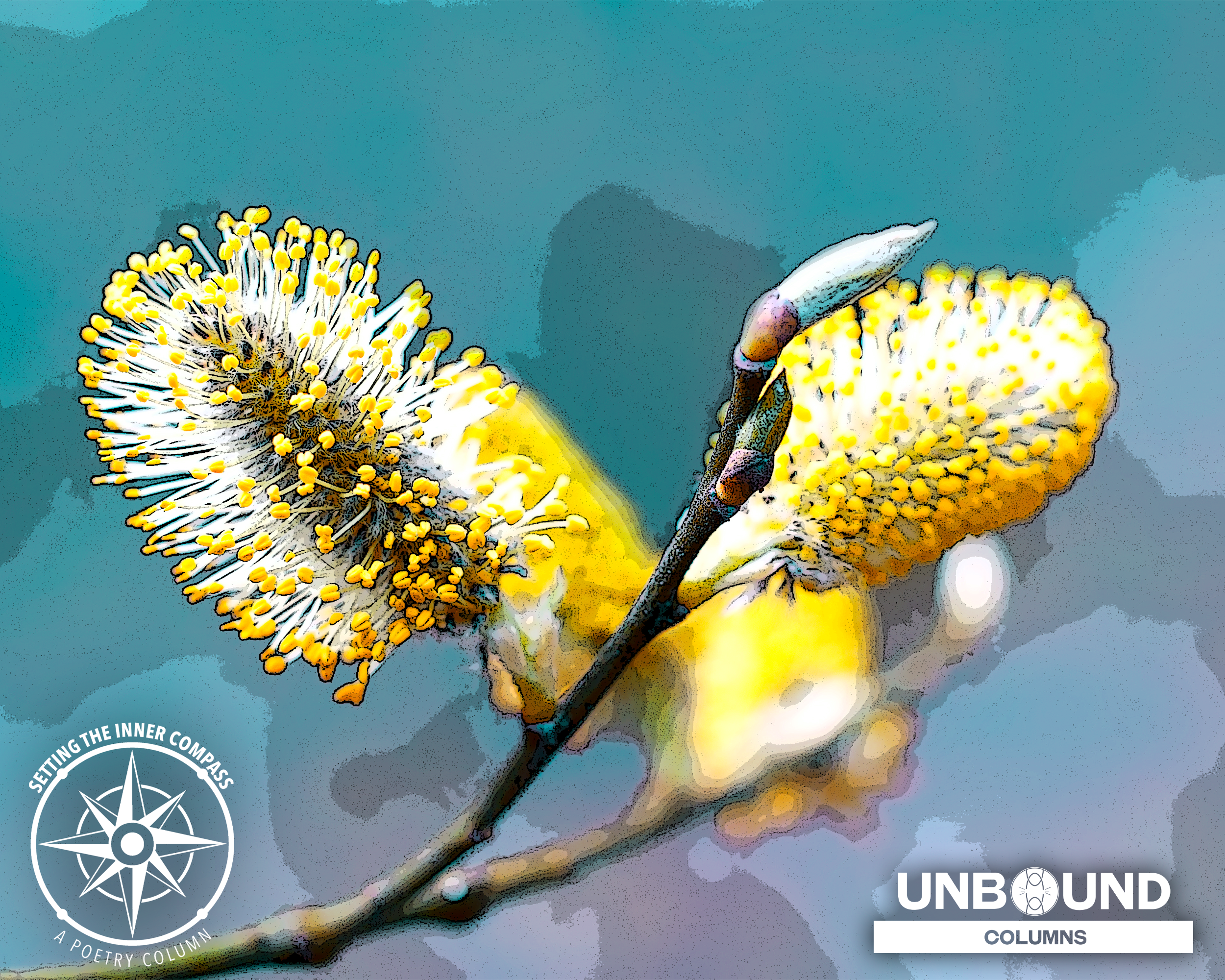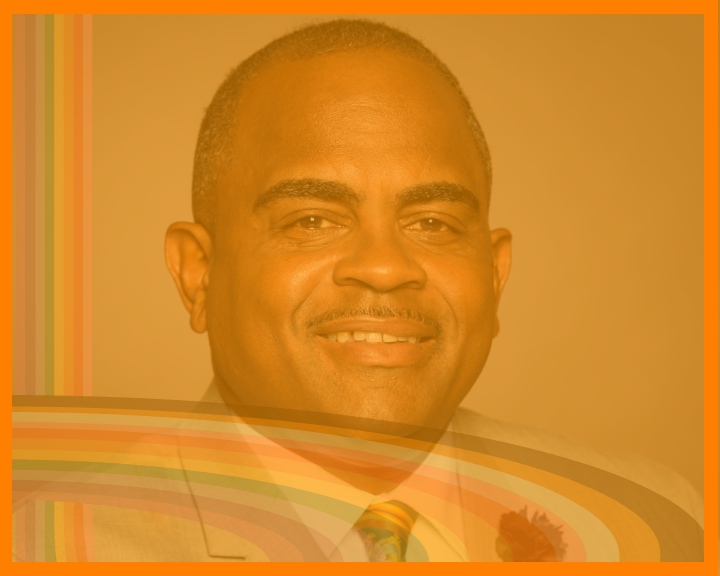Proclaiming A World for Queer Folks Yet To Come
It can’t have been comfortable to be John the Baptist. Camel’s hair clothes and locusts aside, it’s never pleasant to be the one who tells people about a need to repent, to fundamentally change their lives. Perhaps it’s no surprise that we find John in the wilderness—that kind of confrontation can make someone unwelcome at dinner parties. But here we find him: Living the fullness of his truth, proclaiming it unashamed for anyone who might hear. And—as we begin this project of queering Mark’s gospel together—it’s a fitting text to begin with because, whew, what a queer experience. LGBTQIA+ people have long lived like John, holding in our voices and bodies a love that transcends the ways culture tries to confine it—crying out in the wilderness about what will not only free us, but what will liberate all people.
But here we find him: Living the fullness of his truth, proclaiming it unashamed for anyone who might hear.
It’s so frustrating to see queer activism pigeonholed as a niche issue, because the truth is—while LGBTQIA+ people’s rights and freedoms may be particularly imperiled—the social transformation we need would benefit all people. Lies about binary gender don’t just afflict people who need gender-affirming care or fall beyond those tidy confines—they restrict the freedom of cisgender people, too, and are a key component in upholding patriarchy. Likewise, the fight to bless queer sexuality would give all people the safety and freedom to explore the contour and shape of their sexual lives. Damaging systems like purity culture, which presently inhibit many cis-hetero folks from enjoying the freedom and pleasure God yearns for us to share, would necessarily be dismantled. Moreover, normalizing things like alternate kinship structures—long a reality in queer communities—would alleviate the widespread strain so many folks groan beneath while raising children.
John, likewise, comes bearing a gospel that promises to free all people. Biblical commentators situate John within a long line of prophets condemning Roman exploitation—charismatic zealots who dared to defy the violence of that empire because they served a God who they knew beckoned them toward freedom. While Matthew’s gospel contains more fiery words, likening authorities to a brood of vipers, it’s a mistake to miss this dimension of Mark’s text as well. John’s decision to baptize people in the Jordan River—well beyond the reach of the Temple and the Roman officials who occupied Jerusalem—is a radically subversive act. It welcomes people into an eschatological foretaste of what it would be like to live beyond them.
John, likewise, comes bearing a gospel that promises to free all people.
This act of welcoming people into a new world while still living in the grips of violent power is a potent call—especially in days when power is stepping up its commitment to that violence. In May, the state of Alabama announced that it is now a felony to provide trans children with the gender affirming-care that the American Association of Pediatrics recommends. Meanwhile the kind of Don’t Say Gay legislation pioneered in Florida is spreading rapidly across the US. And the open war on abortion rights is an ominous sign for the future of bodily autonomy. In the middle of all of this, we are called to create networks of resistance, ones that embody the love and freedom for which we were created. But, as John models, when people seize the right to crucify folks who transgress the established order, sometimes that work must—by necessity—move underground, into the wilderness.
This act of welcoming people into a new world while still living in the grips of violent power is a potent call—especially in days when power is stepping up its commitment to that violence.
This can feel like defeat, a capitulation to unjust power. But this story is a reminder—sometimes justice needs a womb in which to grow before it can march through the streets of Jerusalem. In these moments, John’s final words in this passage are a benediction and a blessing: “The one who is more powerful than I is coming after me; I am not worthy to stoop down and untie the thong of his sandals. I have baptized you with water; but he will baptize you with the Holy Spirit.” We are not the alpha nor the omega of this struggle. And there are people coming after us who will enjoy and amplify freedom in ways we struggle even to imagine.
I get a glimpse of this when I talk with younger queer people and hear about how they’ve moved through their schooling experiences with honesty, authenticity and integrity I could only have dreamed about when I was in Middle or High School. Obviously, homophobia and transphobia have not been eradicated, but even the modest cultural gains we’ve made in the intervening decades have transformed people’s ability to be proud in who they are. Consider, then, the hope of those who will inherit the society we’ll build together—one where every person has the inalienable right to discern their gender and live into the fullness of their sexuality. They will flourish in ways we can only begin to dream, and their future is what gives me hope even in days when it seems bigotry is winning.
Consider, then, the hope of those who will inherit the society we’ll build together—one where every person has the inalienable right to discern their gender and live into the fullness of their sexuality.
When political rights are swiftly eroding, that doesn’t make the bonds of love and community we create less powerful. In fact, it makes them more essential. Birthing spaces for collective care and moral imagination—where people can embrace the kinds of self-determination that should be national law—is in an integral part of bringing God’s reign closer. It’s why I’m so grateful to serve spaces like Middle Church, where I’m a minister. We may not, on our own, have the power to undo hateful legislation, but our love matters. When I tell a queer child that God celebrates their sexuality, I take my place in that long line of ancestors who bring justice a little bit closer—heralding a world that’s struggling to be born.
Rev. Benjamin Perry is Minister of Outreach and Media Strategy at Middle Church. He has also worked an organizer with the New York chapter of the Poor People’s Campaign: A National Call for Moral Revival, as Deputy Director of Communications and Marketing at Union Theological Seminary, and as an editor at Time Inc.
An award-winning writer, his work focuses on the intersection of religion and politics. His writing can be found in outlets like The Washington Post, Slate, The Huffington Post, Sojourners, Bustle and Motherboard and he has appeared on MSNBC, Al Jazeera, and NY1. He holds a degree in psychology from SUNY Geneseo and a Masters of Divinity from Union Theological Seminary.
He is married to Erin Mayer, and they live with his brother and best friend. He is the editor of the Queer Faith photojournalism series, and helped curate an art exhibit by the same name. He is a passionate advocate for building Church that lives into God’s blessed queerness. His two proudest achievements are skydiving with his grandmother and winning first prize in his seminary drag show.



Unbound Social